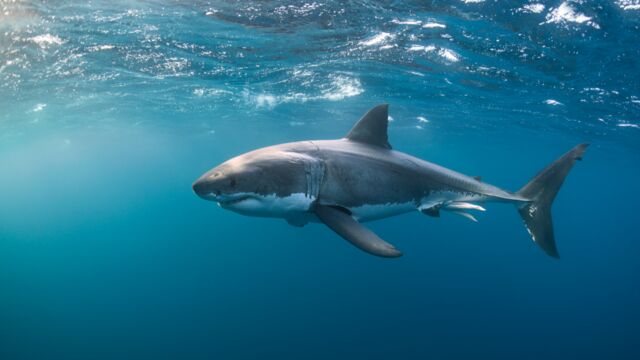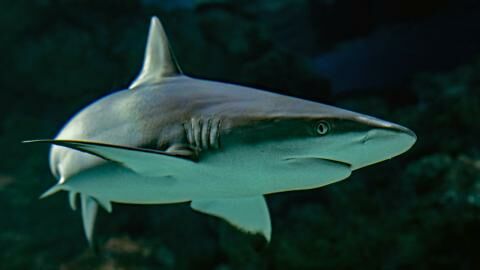There’s no denying that sharks are one of the most terrifying predators to walk – er, swim – this earth. But when it comes to creatures of the sea, whilst they may be the scariest, they’re not the largest, with many species of whale being much larger even than great white sharks.
Discover our latest podcast
That’s why previously, sharks were thought only to scavenge whale-meat from whales that were already dead. Now though, two white sharks have been observed by scientists attacking and killing a humpback whale off the coast of South Africa. Whilst still alive, the whale had been in a bad way before the sharks showed up.
Then, researchers saw two sharks measuring between 3.5 and 4 metres in length attack the much-larger humpback whale using what is called a ‘bite and spit’ technique. This technique, which was first identified back in the 80s, involves the shark biting its prey then leaving it to bleed to death before returning to feed on the dead animal.
What do sharks eat?
Depending on the species, sharks can feed on anything from plankton and small fish to crustaceans, larger fish and marine mammals. Great white sharks are known to feed on seals and dolphins, which they attack whilst alive. Whilst whale meat can also form a significant part of their diets, they scavenge from whale carcasses rather than attacking them whilst alive.
How big are humpback whales?
Whilst not the biggest whales in the ocean, adult humpback whales can measure up to 16 metres long and weigh as much as 30 metric tons. Despite their size, they prey on small fish like krill, haddock, salmon and herring. They have previously been hunted by killer whales – and this new research shows that sharks can also take them down if they’re in a weakened state.















